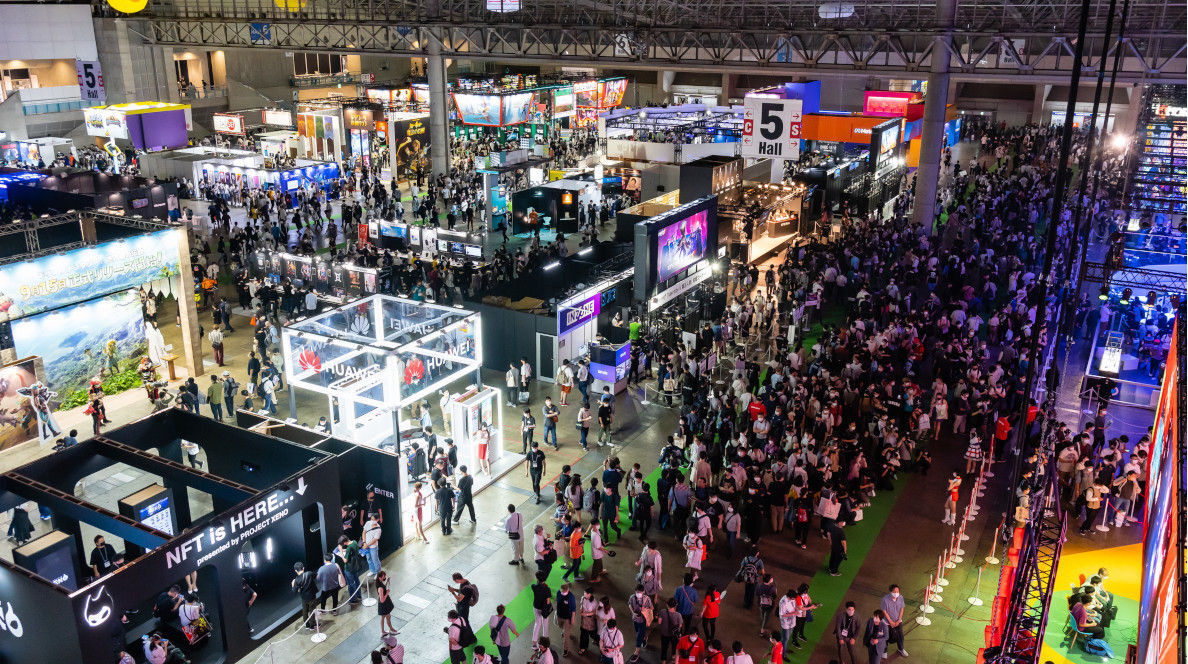reddeadplace.com – The Tokyo Game Show (TGS) is one of the most prestigious and highly anticipated gaming events in the world. Held annually in Chiba, Japan, the event attracts thousands of gaming enthusiasts, industry professionals, and media from all corners of the globe. With its deep ties to the Japanese gaming industry, TGS showcases the latest developments in gaming technology, gameplay, and storytelling, while celebrating both local and international gaming culture. Whether you’re a hardcore gamer, an aspiring developer, or simply a fan of cutting-edge entertainment, TGS offers something for everyone.
A Brief History of TGS
The Tokyo Game Show first launched in 1996 under the organization of the Computer Entertainment Supplier’s Association (CESA) and has since grown into one of the biggest events in the global gaming calendar. Originally a trade show for industry professionals, TGS opened its doors to the public in 2002, allowing fans to experience the latest gaming innovations firsthand. The event has expanded over the years, with an increasing emphasis on consumer gaming, esports, and interactive entertainment, making it a must-visit for anyone involved in or passionate about the gaming world.
Event Overview and Attractions
TGS is typically held in September at the Makuhari Messe convention center in Chiba, located just outside Tokyo. The event spans several days and features a variety of exhibits, including game demos, developer panels, esports tournaments, and live performances. The event is divided into several key areas:
- Exhibit Halls
The heart of TGS is its sprawling exhibition area, where major gaming companies and independent developers showcase their latest titles, hardware, and accessories. The booths are often a mix of vibrant displays, interactive demos, and futuristic concepts. Japanese gaming giants like Sony, Nintendo, Sega, Capcom, Square Enix, and Bandai Namco often have expansive, eye-catching booths, while indie developers also get a chance to present their innovative games to the public. - Indie Game Corner
In recent years, TGS has become a prominent platform for indie developers. The Indie Game Corner offers smaller studios and creators a chance to present their unique games to an eager audience. This corner of the event highlights the creativity and diversity within the gaming industry, offering a fresh perspective on new trends, artistic approaches, and gameplay mechanics. - Esports Arena
With the rise of competitive gaming, TGS has incorporated esports tournaments into its programming. Players from all over the world gather to compete in tournaments for popular titles such as Street Fighter V, League of Legends, PUBG, and Fortnite. These tournaments attract large crowds, and esports fans can enjoy live broadcasts of high-level competition. - Developer Sessions & Panels
For those looking to dive deeper into the game development process, TGS features a wide range of panels and talks from industry experts, developers, and thought leaders. Topics often include game design, animation, VR/AR technology, sound design, and even discussions on the future of the gaming industry. These sessions provide invaluable insights into how the games we love are made and the trends shaping the future of gaming. - Stage Performances & Concerts
TGS isn’t just about playing games—it’s also a celebration of gaming culture. Over the years, TGS has hosted live concerts featuring soundtracks from beloved games, as well as performances by voice actors and game-related shows. Music is an integral part of the gaming experience, and TGS highlights this with engaging performances from Japanese pop idols, composers, and other music artists who perform music from popular game franchises. - Cosplay
Like many major gaming events, TGS is home to an impressive cosplay scene, with fans dressing up as their favorite characters from video games, anime, and manga. The cosplay at TGS often features high levels of craftsmanship and creativity, adding a lively, interactive element to the show.
Notable Announcements and Reveals
One of the key draws of TGS is the opportunity to witness exclusive game announcements and world premieres. The event has been the stage for several major game reveals over the years, with top-tier developers and publishers unveiling highly anticipated titles. While it’s not as news-heavy as events like E3, TGS often serves as a venue for Japanese-focused games and regional premieres. Some of the most notable announcements in TGS history include:
- Final Fantasy XV (2013) – A major showcase of the long-awaited RPG, which included new trailers and live demos.
- Resident Evil 2 Remake (2018) – A surprise reveal of Capcom’s stunning remake of the classic survival horror game.
- PlayStation VR (2016) – Sony’s unveiling of its virtual reality headset for PlayStation 4, a major milestone in the evolution of VR gaming.
- Kingdom Hearts III (2018) – New gameplay footage and a closer look at one of the most anticipated RPGs of the decade.
- Horizon Forbidden West (2021) – A demo that captured attention with its breathtaking visuals and new gameplay features.
TGS also serves as a platform for developers to connect with publishers and media, generating buzz around upcoming projects and establishing important partnerships.
The Role of TGS in the Japanese Gaming Industry
TGS is an essential event for Japan’s gaming culture. Japan has long been a powerhouse in game development, with iconic franchises such as Mario, Final Fantasy, Pokémon, Zelda, and Monster Hunter shaping the landscape of modern gaming. TGS highlights this legacy while also embracing global trends, providing a unique opportunity for both local and international audiences to experience Japan’s contribution to gaming innovation.
In addition, TGS serves as a platform for collaboration, with developers and publishers discussing future trends in gaming and technology. The event allows the Japanese gaming community to interact with the global industry, forging relationships that often influence the direction of gaming across the world.
Cultural Significance
Beyond the games themselves, TGS reflects the broader cultural trends in Japan. The event is a celebration of anime, manga, and pop culture, as these elements are often intertwined with video games. Cosplay, merchandising, and promotional campaigns featuring famous anime characters are commonplace, allowing attendees to immerse themselves in the world of Japanese entertainment. The vibrant atmosphere of TGS is also a reflection of Japan’s dynamic approach to entertainment and storytelling.
Conclusion
The Tokyo Game Show remains one of the most important events in the gaming industry, bringing together developers, players, and enthusiasts in an exciting celebration of innovation, creativity, and culture. Whether you’re there to demo the latest tech, explore new indie games, watch an esports tournament, or simply soak in the atmosphere, TGS provides a unique opportunity to experience the pulse of the global gaming industry. As the gaming landscape continues to evolve, Tokyo Game Show will undoubtedly remain a critical touchstone for gamers worldwide.






